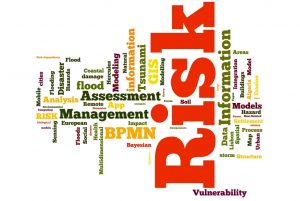The Inaugural Disability Communications and Media Preconference 2024 – Emerging or Emerged?
Organizers:
Kuansong Victor Zhuang, Gerard Goggin, Katie Ellis, Beth Haller, Elizabeth Ellcessor, Lorenzo Dalvit, Dyah Pitaloka, Abdul Rohman, Francis Routledge, Valquiria Ramos Obregón Thursday, 20 June 2024 | 9:00 AM – 4:00 PM (AEST) Gold Coast Convention & Exhibition Centre (GCCEC), Australia Hybrid Submission deadline: 9 Feb 2024
https://www.icahdq.org/mpage/ICA24-DisabilityComm
This preconference invites papers that showcases cutting edge scholarship in the area of disability communications and media research.
We have two aims:
1) We hope this preconference will spotlight emerging research at the intersections of disability and media/communications;
2) We hope the preconference will provide an avenue for mentorship
A key focus of this inaugural preconference is to take stock of the field. To this effect, we ask: is disability communication and media research an emerging or emerged area of research within communication and media studies? Such a question has already been asked, notably within the academic discipline of disability studies. And given the large body of work that has focused on/around disability in communication and media research over the past two decades (Ellis et al.
2020; Ellis and Goggin 2013; Hadley and McDonald 2018; Ellis et al.
2019; Riley 2005; Ellcessor and Kirkpatrick 2017; Haller 2010; Ellis and Kent 2011; Ellis 2016; Ellis and Kent 2016; Ellis and Goggin 2015; Alper 2017, 2023; Sterne 2021; Goggin and Newell 2003; Goggin 2021; Jeffress et al. 2023), a reckoning of the state of disability research at this particular moment is especially opportune.
Importantly, we situate this preconference with efforts of disability scholars to engage with communication studies as a discipline. We invite submissions that consider the question of whether disability communications and media research is an emergent or emerged field and/or work that highlight cutting edge research (loosely defined) in the area of disability communication/media and research.
We welcome submissions from all including postgraduates, early-career, emerging and established scholars based on, but not limited to the following topics:
- Research that spotlights emergent, cutting edge andexciting areas of disability communication and media research
- Research that brings together disability-ledperspective to engage communication and media studies
- Research that consider what it means to dodisability-led research in the areas of communication, media and technology
- Research that takes stock of disability communicationand media research to-date
- Research that spotlights disability communication andmedia research away from Global North locations
and/or engages with the following questions:
- Is disability communication and media research anemergent or emerged field?
- How can disability research engage with and enrichcommunication and media studies and vice versa?
- What can we as communication scholars learn from disability insights such as crip time and slowing down in academic environments?
- What are the methodological contours of disability communication and media research?
- What are the gaps, problems, areas of concern in disability communication and media research?
- What is the future of disability communication and media research?
We welcome submissions across methodological approaches and mediums.
Submissions should also build on the core tenets of disability studies, which demands a critical rethinking of disability in normative societies.
If interested, pls submit a 250-word abstract of your proposed topic and title, with a 50-word bio by 9 Feb 2024
- Title the email CFP Disability Communications and Media Preconf 2024
- All submissions and queries should be directed at
- Indicate if you are likely to be participating remotely/in person
and also any access needs
* This preconference will be hybrid, so both physical and remote participation will be possible.
* Please note that we strongly encourage postgraduates and early career scholars to participate and will prioritise their submissions.
* We also hope to match potential mentors and mentees as part of this preconference. If you would like to mentor emerging scholars in the field of disability and communications, or be mentored, please do indicate your interest by sending an email to victor.zhuang@ntu.edu.sg <mailto:victor.zhuang@ntu.edu.sg> *fees, if any to be announced
References
Alper, Meryl. 2017. Giving voice: Mobile communication, disability, and inequality. Boston: MIT Press.
—. 2023. Kids Across the Spectrums: Growing Up Autistic in the Digital Age. Boston, MA: MIT Press.
Ellcessor, Elizabeth, and Bill Kirkpatrick. 2017. Disability media studies. New York: NYU Press.
Ellis, Katie. 2016. Disability media work: Opportunities and obstacles.
London: Palgrave.
Ellis, Katie, and Gerard Goggin. 2013. “Disability and social media.” In The social media handbook, edited by Jeremy Hunsinger and Theresa M.
Senft, 134-151. London: Routledge.
—. 2015. Disability and the Media. Basingstoke: Palgrave.
Ellis, Katie, Gerard Goggin, Beth Haller, and Rosemary Curtis. 2019. The Routledge Companion to Disability and Media. London: Routledge.
—. 2020. The Routledge companion to disability and media. London:
Routledge.
Ellis, Katie, and Mike Kent. 2011. Disability and new media. London:
Routledge.
—. 2016. Disability and social media: Global perspectives. New York,
NY: Routledge.
Goggin, Gerard. 2021. Apps: From mobile phones to digital lives. John Wiley & Sons.
Goggin, Gerard, and Christopher Newell. 2003. Digital disability: The social construction of disability in new media. Lanham, MD: Rowman & Littlefield.
Hadley, Bree, and Donna McDonald. 2018. The Routledge handbook of disability arts, culture, and media. Routledge.
Haller, Beth. 2010. Representing disability in an ableist world: Essays on mass media. Louisville, KY: Advocado Press.
Jeffress, Michael, Jim Ferris, Joy M Cypher, and Julie-Ann Scott-Pollock, eds. 2023. The Palgrave Handbook of Disability and Communication. London: Palgrave Macmillan.
Riley, Charles A. 2005. Disability and the media: Prescriptions for change. Lebanon, New Hampshire: University Press of New England.
Sterne, Jonathan. 2021. Diminished faculties: A political phenomenology of impairment. Duke University Press.
_________________________________________________________
Horst Kremers, Engineering Management and Information Sciences
Senior Engineer, Information Systems Strategy Advisor
https://orcid.org/0000-0002-3992-6340
